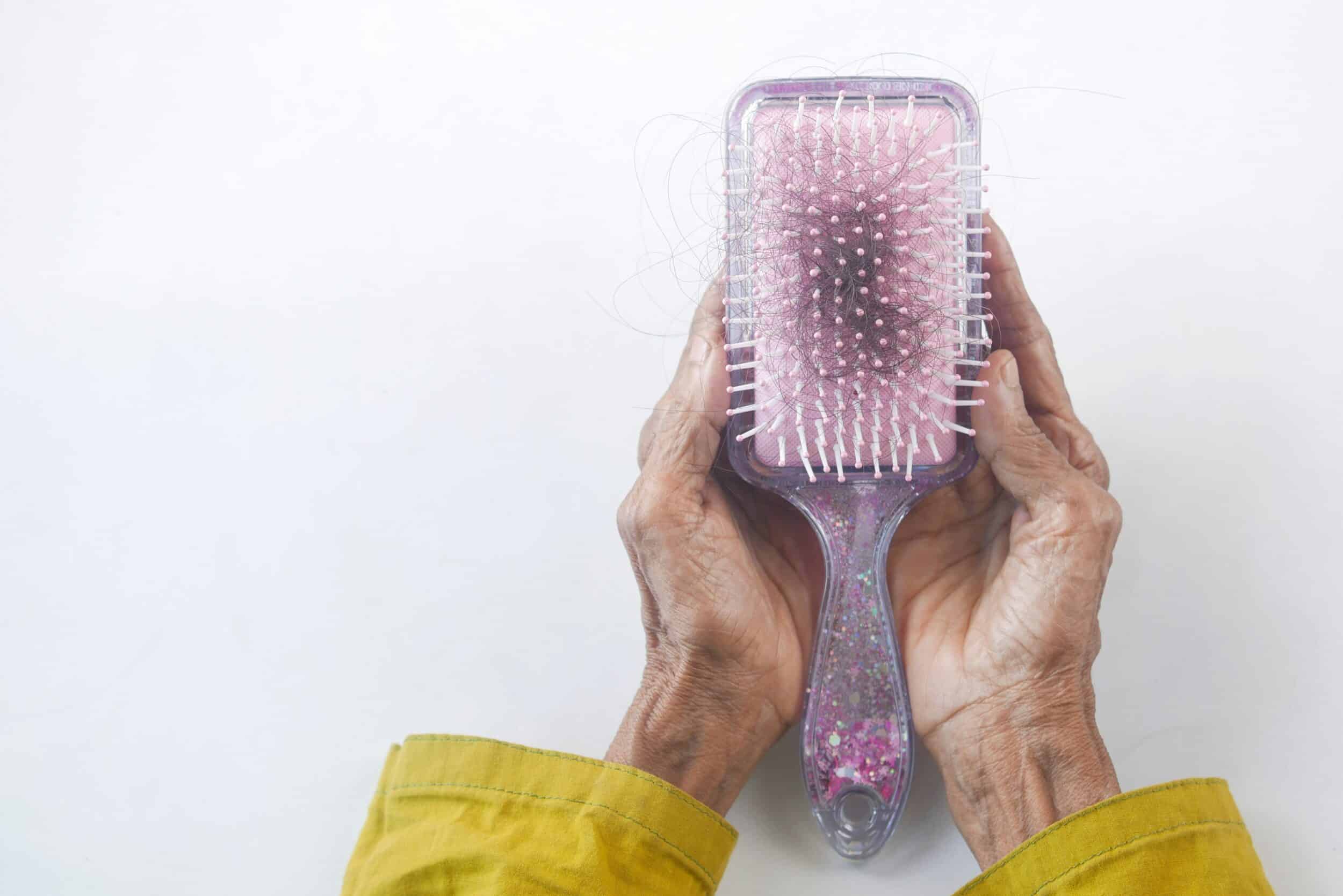For many, cranial prostheses, also known as medical wigs, offer a solution that not only restores appearance but also boosts self-esteem. People who don’t have hair loss may wear a wig for style. Those experiencing hair loss, or alopecia, due to a medical conditions or treatment, however, may want a wig to as a medical device.
Although the goal of a hair loss dermatologist is to keep someone out of a wig, sometimes hair loss recovery takes months–or the alopecia is permanent. In these cases a cranial protheses may be the best options to camouflage their alopecia.
Read on as we delve into what cranial prostheses are, the diagnoses that might qualify for this benefit and the potential for, and steps to obtain, insurance coverage.

What is a Cranial Prosthesis?
A cranial prosthesis is a specially designed wig for individuals experiencing significant hair loss due to medical conditions or treatments. Unlike regular wigs, cranial prostheses are crafted to accommodate sensitive scalps, ensuring comfort and a natural appearance. They are made from high-quality materials, such as medical-grade silicone and human hair, to provide a realistic look and feel. Some cranial prostheses are designed for swimming. Most regular wigs are designed to fit over hair on the head.
Features of Cranial Prostheses
- Custom Fit: Tailored to fit the individual’s scalp for maximum comfort.
- Hypoallergenic Materials: Made from materials that minimize the risk of irritation.
- Secure Attachment: Designed to stay securely in place during daily activities.
- Natural Appearance: Meticulous craftsmanship ensures they mimic natural hair.
Insurance Coverage for Cranial Prostheses
One of the most common questions regarding cranial prostheses is whether they are covered by insurance. The good news is that, under certain conditions, insurance policies may cover the cost of a cranial prosthesis. This can significantly reduce the financial burden for individuals undergoing treatments that result in hair loss.
Conditions for Insurance Coverage
Insurance coverage for cranial prostheses typically requires a diagnosis of a medical condition that results in hair loss. Some common conditions include:
- Cancer Treatments: Chemotherapy and radiation therapy can lead to significant hair loss, making cancer patients eligible for cranial prostheses coverage.
- Scarring Alopecia: These would include discoid lupus, central centrifugal cicatricial alopecia, lichen planopilaris
- Alopecia Areata: This autoimmune disorder causes unpredictable hair loss and can qualify patients for coverage.
- Trichotillomania: A mental health condition that leads to compulsive hair pulling and significant hair loss.
- Burns and Scalp Injuries: Individuals who have suffered burns or traumatic injuries to the scalp may also be eligible for coverage.

How to Get a Cranial Prosthesis Covered by Insurance
Securing insurance coverage for a cranial prosthesis involves several steps. Here’s a detailed guide to help you through the process:
1. Contact your Insurance Plan
Some insurance plans exclude cranial prostheses all together. You’d want to know this before you embark on submitting a claim. If a cranial prosthesis is covered, find out what specific documents your plan requires.
2. Consult Your Dermatologist
The first step is to consult your dermatologist to get a diagnosis for your hair loss to justify your the need for a medical wig or cranial prosthesis. They can provide a prescription, which insurance companies usually require to consider coverage.
3. Obtain a Detailed Prescription
Ensure that the prescription from your healthcare provider includes:
- Your diagnosis: This should include an ICD code (diagnosis code)
- The term “cranial prosthesis” specifically (rather than just “wig”). This would include a CPT code (procedure or device code). These include the following:
- S8095
- A9282
- The reason why the cranial prosthesis is medically necessary.
4. Contact Your Insurance Company
Reach out to your insurance provider to inquire about their specific requirements for coverage. Ask them to provide detailed information on what required documentation and forms.
5. Collect Necessary Documentation
Prepare the following documents to submit to your insurance company:
- The prescription from your healthcare provider.
- A letter of medical necessity, which can be written by your doctor, explaining why the cranial prosthesis is essential for your health and well-being. The cause of hair loss may be permanent or temporary
- Any other supporting documents, such as your medical records or a detailed diagnosis report.
6. Submit a Claim
Submit the required documents along with a claim form to your insurance company. Keep copies of all documents for your records. It may also be beneficial to follow up with the insurance company to confirm receipt and ask about the processing timeline.
7. Appeal if Denied
If your initial claim is denied, don’t be discouraged. Many insurance companies have an appeals process. You can submit additional documentation or request a review of your case. Sometimes, persistence pays off, and claims are approved upon reconsideration. Sometimes, however, cranial prostheses are just excluded from your insurance plan.
Conclusion
Cranial prostheses provide a lifeline for individuals experiencing hair loss due to medical conditions. With the potential for insurance coverage, these medical wigs can be accessible and affordable. By following the proper steps to secure coverage, you can regain your confidence and appearance without bearing the full financial burden. Always consult with your healthcare provider and insurance company to navigate the process effectively.


